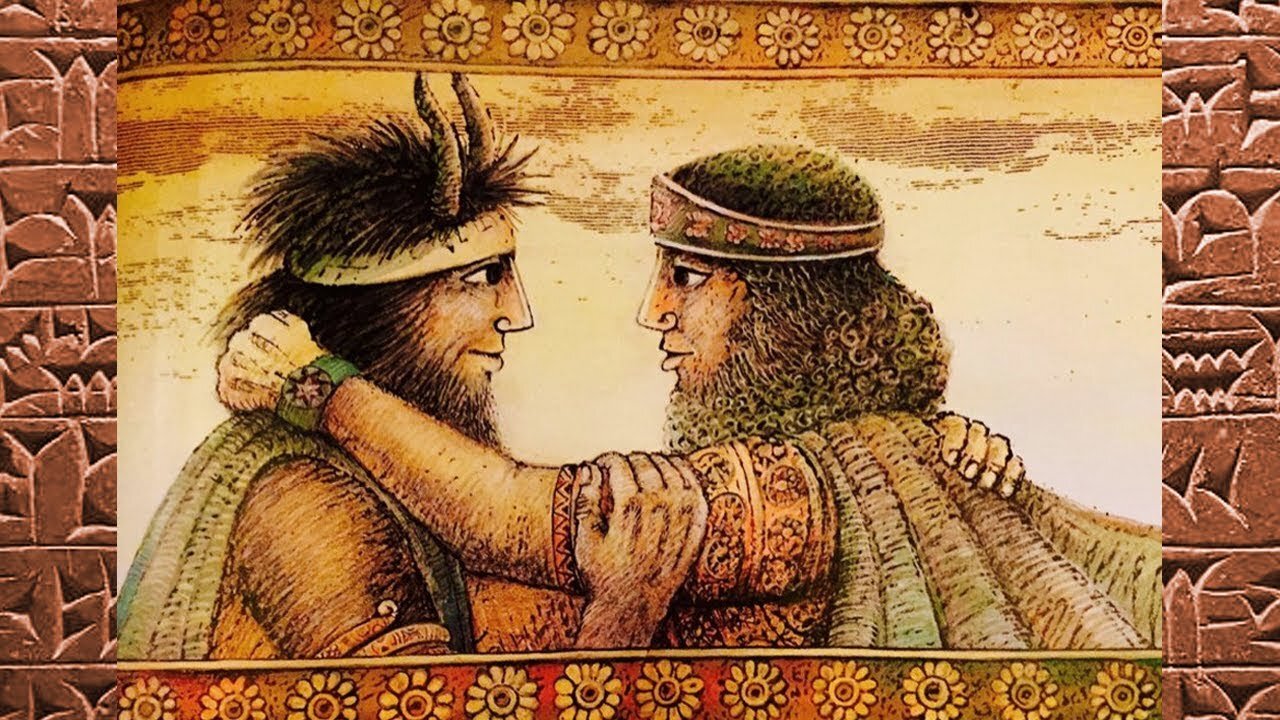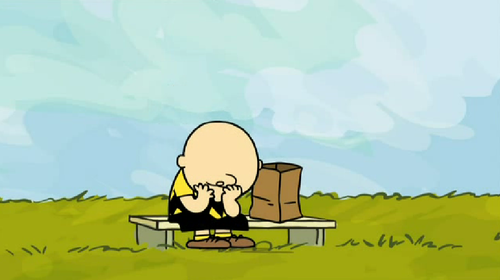The Epic of Gilgamesh is one of my favorite books ever. It’s also the oldest epic tale we have, describing events that date back to about 2,500 years BCE.
Gilgamesh was tall, handsome, strong, smart, and the King of Uruk, a walled city-state in what is now Iraq. He was reported to be 2/3 divine and 1/3 human. He was also a pretty major malignant narcissist. As a consequence, he was a very bad king, who viewed the kingdom as his personal candy store. His position as a leader was all about getting everything he wanted at the expense of whomever had to pay. He exploited his position and his people for his own base enjoyments and personal enrichment. When we meet him, he’s not married, but he insists on always being the substitute groom who spends the wedding night with any young woman of his kingdom who is married, and then he moves on to the next special treat he plans to give himself. He wears out the young men of the kingdom in competitive games just so he can win, over and over, and continue to prove his immense superiority.
The people complain to the gods, “Help us with this guy! We can’t take it any more!” And the gods do something creative. They make him a counterpart, an equal to him in size and strength, and they initially put this man into the woods to live with the animals as their protector. While Gilgamesh is a man of the city, this new creature Enkidu is a child of the forest. Gilgamesh has experienced the height of sophistication in an urban setting that at its peak had up to 80,000 inhabitants. Enkidu as a nature boy has a mindset of simple innocence. Rumors of his existence, great strength, and exploits in saving the animals from hunters make their way to the city, and Gilgamesh is both intrigued and troubled. He has to meet this individual and perhaps once again prove his superiority over what is quickly becoming an urban legend and, in that sense, a threat to his own reputation as the strongest and greatest man alive.
Gilgamesh goes to the big religious temple in town and approaches the beautiful temple prostitute—which was apparently a well-known job in ancient times, serving to unite the world and the spirit in distinctive ways—and he asks her to go find this legendary man in the woods and use her special skills to lure him to town. She agrees and is successful. I'll elide over all the fascinating details.
To summarize: Enkidu arrives just as Gilgamesh is about to exercise his jus primae noctis (right of the first night) or, as it later came to be called, his droit du seigneur, and the wild hairy man of the forest intervenes to stop the king from this presumptuous deed. They fight violently and it’s basically a tie. Gilgamesh is very impressed. So is Enkidu. They instantly become best friends, and soon go off on adventures together. The prayers of the people have been answered. The king is no longer interested in exploiting them. He has bigger fish to fry with his new buddy. But the things the two big guys get involved in bring the wrath of the gods, and Enkidu has to die. Gilgamesh is stunned and falls into intense grief. He goes on a challenging and difficult quest to find the secret of avoiding death, any key to eternal life possible, having heard that there is one man far away who has this unique gift. In the midst of his daunting journey in a desperate search for immortality, he oddly comes across a wine bar in the middle of nowhere, and a wise barmaid named Siduri, who advises him to abandon this inevitably futile search and learn to be happy with what he has.
In one of the most beautiful and wise passages in all of literature, Siduri says:
“Gilgamesh, where are you going? You’ll never find the eternal life you seek. When the gods created man, they gave him death, and they kept life without it for themselves. Humans are born, live, and die. This is the order that’s decreed. But until your own end comes, enjoy your life. Live it in happiness and not despair. Relish your food and drink. Make each of your days a delight. Bathe and groom yourself well. Wear nice clothes that are sparkling and clean. Let music and dancing fill your house. Love the little child who holds your hand. And give your wife pleasure in your embrace. This is the way for a man to live.”
He’s unable to listen to this great advice, and continues on his mission until when it fails, as Siduri knew it would, and he returns to his city, chastened, and humbled, and perhaps ready to live as the wise woman had suggested.
It’s often been said that the two great forces in life are love and death, or the polarity of desire and fear. The Greek word ‘Eros’ is often used for the former, and ‘Thanatos’ for the latter. When the story begins, Gilgamesh is motivated by Eros, but in a bad and corrupted way. Then, with Enkidu’s death, his motivation changes. He’s moved by Thanatos, but also in a bad way. I believe the power of the story is that he discovers in the end how to be motivated by both in a constructive and positive way.
I won’t follow Freud in his famous uses of Eros and Thanatos, which I take to be the claim that we’re either motivated by a constructive creativity that moves toward unity and life, or a destructive aggression that delights in dissolution and death. I would rather see these two polarities in a different way.
The force of Eros is a pull toward life. The force of Thanatos is a push away from death. Or to put it more comprehensively:
The Pull of Eros is about embracing life, strength, pleasure, and growth.
The Push of Thanatos is about avoiding death, suffering, deprivation, and weakness.
The common human quest for money or power, status or fame can be driven by either of these forces. Gilgamesh experiences the full range of this, and for most of the story only in bad or unwise ways. Siduri recommends to him a life of proper Eros in a constructive mode. Before the death of his friend, the king had been living a life of Eros in an improper or destructive mode.
The proper mode of Eros is to bring good to others as well as yourself. The improper mode is to focus only on yourself.
When Enkidu dies and Gilgamesh is plunged into the shock and grief that results, his motivation changes. He is desperate to avoid death in his own life. But perhaps even before he met Enkidu, there was a negative motivation from the side of Thanatos in his life. The destructive mode of Thanatos, like destructive Eros, is also to focus only on yourself, but in this case in a willingness to sacrifice the good of others in order to avoid your own vulnerability to death, suffering, deprivation, and weakness.
By contrast, a proper and constructive mode of Thanatos motivation is to focus on helping others to avoid needless death, suffering, deprivation, and weakness.
Done right, the two motivations of Eros and Thanatos both can be manifestations of love. Done wrong, they’re the opposite.
Love: Care, Compassion, Nurture, and Delight: That’s what Siduri wanted Gilgamesh to learn to experience and give to others. And I think eventually he does. If there was hope for him, there may be hope for nearly anyone. It’s a story well worth your time.
For the best translation of the tale, scraped together from various clay tablets, click HERE.























